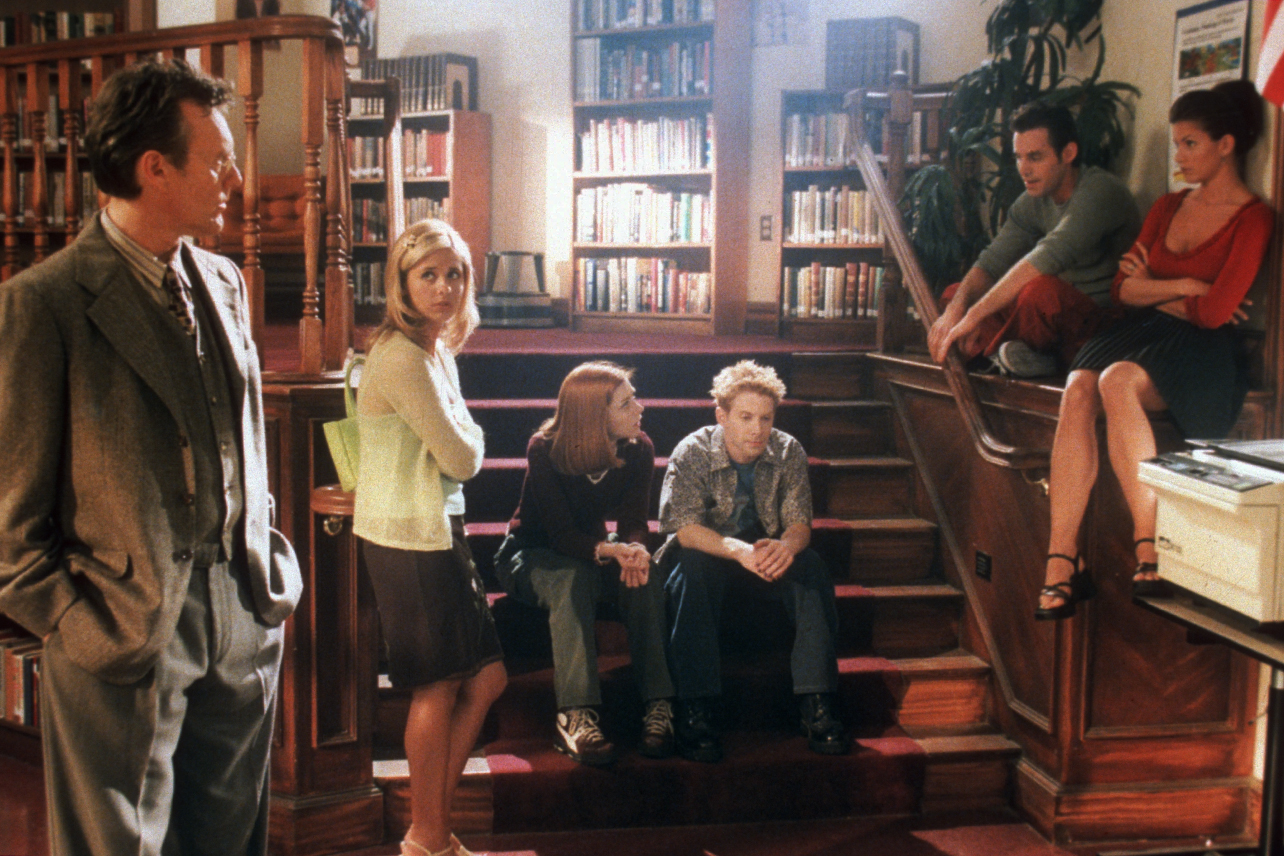Finding lost works from big name creators always makes the news, and 2024 has played host to not one, not two, but three blasts from the past. And these names aren't chumps. They're some of the biggest names in their fields.
The realm of horror fiction was rocked in October by the discovery of a lost Bram Stoker short story, Gibbet Hill, published in the 1890 Christmas supplement to the Dublin Daily Express. Described in the press as an "amateur historian" and "fan," Brian Cleary discovered this long-forgotten piece that was published while Stoker was in the process of writing Dracula, a masterpiece that was made into several films, most notably Dracula 2000, starring Gerard Butler. The gory short story — suitable at the time for publication in a Christmas newspaper, I guess — is about a sailor who is murdered by three men who are then strung up on gibbets. What are gibbets? Metal cages where criminals (or just their decomposing bodies) were hung to die of exposure.
Cleary discovered this story in the newspaper archives of the national library in Dublin where he spent his days on leave from work following an attack of hearing loss. Coincidentally, Stoker's mother also suffered from hearing loss. The new publication of Gibbet Hill will go on sale soon, with proceeds going towards the newly formed Charlotte Stoker Fund, which helps fund research on infant hearing impairment. Irish artist Paul McKinley will handle the art and it will be published by the Rotunda Foundation, the fundraising arm of Cleary's employer, Dublin's Rotunda Hospital.
Dracula has spread such a long shadow over pop culture that discovering an additional facet to its iconic author could illuminate so much more about his mind and other work. 2016's Something in the Blood: The Untold Story of Bram Stoker, the Man Who Wrote Dracula by David J. Skal proposed that Stoker was a closeted gay man who had feelings for both Oscar Wilde and Walt Whitman, and it would be interesting to see if some of the homoerotic ideas that he placed into Dracula also appear in this 1890 story. At the very least it promises to be a ghastly horror story for fans of murder and gibbets.
Only a short time earlier, as reported widely in September, a lost work from Wolfgang Amadeus Mozart was discovered in the collections of Leipzig Municipal Libraries. The 12-minute Serenade in C in seven parts for a string trio was discovered by the library as it sought to piece together a complete collection of Mozart's works. This handwritten copy of Serenade in C sat forgotten for 244 years, although it is thought to have been completed maybe 20 years earlier, when Mozart was in his early teens. Stylistically it supposedly matches his works from around ages 10 to 13, and it's attributed to "Wo[l]fgang Mozart," without the "Amadeo" that he began adding regularly in 1769.
I'll admit that I am an untuned ear when it comes to classical music, but it's a nice, lively piece for two violins and a cello that wouldn't feel out of place in the background of Bridgerton or playing at a highbrow coffee shop. You can even listen to it to chill out in your own home, as multiple versions have been uploaded to YouTube. Once Serenade in C was rediscovered, retitled as "Ganz kleine Nachtmusik," the first stop was Salzburg for a premiere.
The piece was then performed for a packed opera house in Leipzig. In the spirit of democracy, after the Leipzig performance a string trio joined the large crowd that had formed outside for a free performance of this long-lost serenade.
If Stoker's name looms large over horror fiction – there is a prestigious Bram Stoker award for horror – then Mozart's looms larger in the field of classical music. He composed over 600 pieces of music in his only 35 years on Earth, some of which are lost, like Serenade in C was up until 2024. His work is performed and recorded year after year to appreciative fans, and taught as part of music curriculums around the globe. And that's not even speaking to his collaboration with Insane Clown Posse and Jack White in 2011 (which did happen, it's an unexpected bop).
But while the Leipzig Municipal Libraries are unearthing culture from the 18th century, archaeologists in Egypt are literally digging up pieces of lost plays from around 2500 years ago. Excavating in the city of Philadelphia (NOT the home of the Dead Milkmen) southwest of Cairo, nearly 100 lines from two plays by the famous playwright Euripides came to light, written on the back of a land survey. The fragments were discovered in 2022, although they weren't fully confirmed and publicized until August of 2024. That's good scholarship, not rushing to publish their findings until the text has been thoroughly studied.
While Euripides was said to have written between 90 and 95 plays, only 19 of them have survived since his death in 406 BCE. The fragments include 37 lines of the play Ino and 60 lines of the play Polyidos. Both are known only by summaries that have been passed down from ancient times. According to Richard Widdington's article about the find on artnet.com, "In the fragment of Ino, a tragedy in which Ino and Themisto, the first and second wives of the Thessalian king Athamas, plot to dispatch the other's children, the scene depicts Ino crowing over the vanquished Themisto. The work was one of Euripides' best-loved plays but has largely been lost." Polyidos deals with the story of King Minos asking the seer Polyidos to resurrect his son, and the found text is a dialogue between the two of them regarding money and good governance.
You can read both of these Euripedes fragments courtesy of the University of Colorado Boulder, where the text was studied.
I think that we can expect more of these discoveries coming over the next few years. Earlier this year a group of students finally read text off of charred papyrus from the Roman city of Herculaneum that had been burnt to a crisp by the eruption of Mount Vesuvius in 79 CE. Using advanced scanning techniques and machine learning developed over the last 20 years by scientist Brent Seales, the team identified 2000 characters from a scroll that resembles a charcoal briquette. Early attempts to unscroll the 1800-volume library, the largest of the ancient world ever discovered, resulted in handfuls of dust. The scroll was a previously unknown work by Philodemus of Gadara, a poet and philosopher, giving his thoughts on the concept of "pleasure."
And like the Stoker short story proves, not all of the lost media have to be discovered in ancient digs on crumbly papyrus. In 2014 author and podcast host Noah Diamond was able to recreate the unfilmed and presumably lost Marx Brothers musical "I'll Say She Is," staging it for the first time since 1925 for New York City's Marxfest and then FringeNYC. Diamond took published sheet music from the show, a draft script, and newspaper quotations of jokes from the show and sewed it all up into a hilarious package of Marx Brothers chaos. As a member of the audience for both the first staged reading in 90 years, and then again as an audience member for the off-Broadway run in 2016, I highly recommend Diamond's book about his process, Gimme A Thrill, released in 2016 by Bear Manor Media.
Maybe one day we'll discover a full version of 1927's London After Midnight too. Hell, if we can discover lost Euripides plays, anything seems possible.






